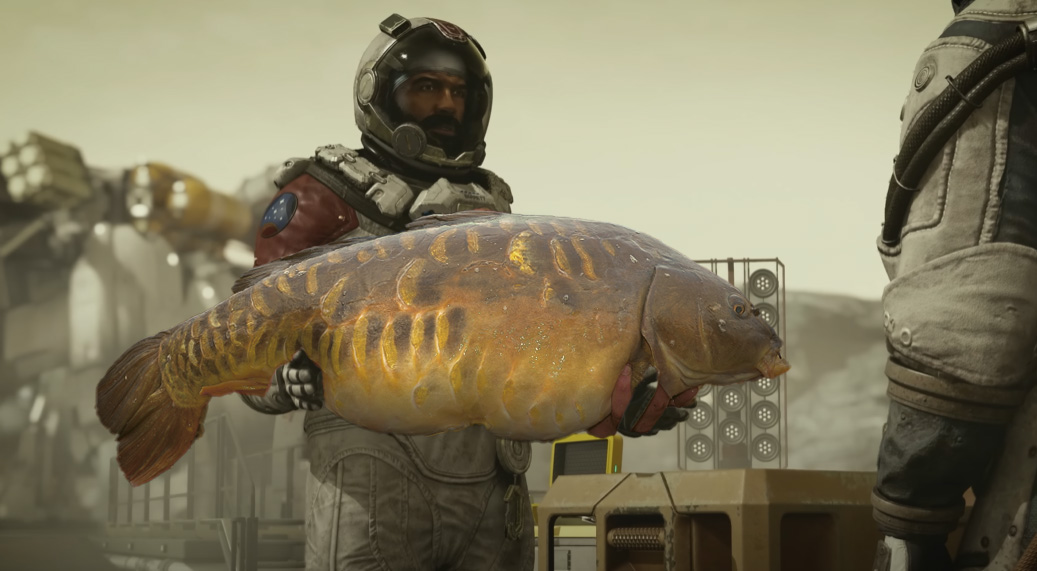Welcome back readers.
Site updates! Kaile’s been hard at work not only putting together the (*cough cough* Patreon-exclusive) monthly roundup, but expanding our social media presence into a number of the places people have landed since Twitter began its medium-motion implosion into a fascism-on-demand subscription service. As a result we can now be found on Mastodon, cohost, and Bluesky. No, I still don’t really understand how Mastodon works, please don’t ask me, I’m baby.
This Week in Videogame Blogging is a roundup highlighting the most important critical writing on games from the past seven days.
Systems Analysis
While we often feature sections dedicated to systems of design as they are understood and expressed in games, this time the systems are those of power, control, and revolutionary action in the material world, and to that end this opening trio goes hard.
- The Freelancer | Bullet Points Monthly
Yussef Cole meditates on the irreconcilable dichotomies of the freelancer, in Armored Core and elsewhere. - WASTE EATER and the (Worthwhile) Collective Consequence | Gamesline
Franny thinks about who foots the bill for revolutionary transformation when its benefits will be left to future generations. - How Some Men Play Dungeons & Dragons on Texas’ Death Row | The Marshall Project
Keri Blakinger reports on the connections through play formed in the most isolating appendage of the carceral state.
“In the spring of 2020, Wardlow decided to start one last game, a smaller, simpler campaign that he created for a few of his friends, involving a mythical city and a quest to save a magic sword. “I’m sure you’ve seen those Final Episodes of your favorite shows,” Wardlow wrote to me in his last letter on June 24, 2020, which he composed on his prison typewriter. “That’s what this is like. Although I hope this isn’t the Final Episode.” Two weeks later, the state executed him.”
The Hot Goss
Next, let’s catch up with critical impressions from the newest games, from both the triple-A and indie ends of the spectrum.
- Starfield makes space travel its most trivial mechanic | Polygon
Maddy Myers finds getting around in Starfield to be a little too frictionless. - Goodbye Volcano High review – killer tunes soundtrack a teen drama for the ages | Eurogamer
Alexis Ong finds a rhythym of raw authenticity in KO_OP’s work, setting it apart in a genre so often given to wistful navel-gazing.
“There is no lesson to be learned here, other than to do what you love until you can’t. It’s this fierce drive toward autonomy in the face of despair that elevates Volcano High above standard coming-of-age fare, which tends to tie up these hormonal dramatic stories with a lot of sound but no fury.”
Critical Strands
Now, let’s delve into telesthetics, Internet culture, and more.
- We Can’t Get Out Without Talking About Slenderman | Unwinnable
Emma Kostopolus traces the linkages between the Slenderman phenomenon, meme-myth propogation, and escalations to violence and specifically white nationalist violence. - Squall is Extradimensional | Unwinnable
Phoenix Simms explores the faerie telesthetics of Final Fantasy VIII.
“What interests me about telesthesia and how it relates to Ellone, Laguna and Squall connecting psychically over time and space is that it’s a way for FFVIII’s writers to reckon with the strangeness of early internet era socialization. Even if subtextually, FFVIII tackles how abstracted socialization was starting to become in the early internet era where everyday life was becoming increasingly more mediated by technology.”
Critical Chaser
We’re finishing off this week with an unusual game and an unusual review.
- REVIEW: Outshine Is a Thrilling Introduction to the Typing Game Genre | Sidequest
Michelle Caldeira plays. . . a typing shmup? Is that what I just read about?? - My review of a warehouse I found on Earth’s Moon in the video game Starfield | a blog
OSHA violations all over the shop.
“This whole thing seems pretty dangerous. There’s no roll cage. I guess maybe there’s no OSHA in the future? Or maybe this thing has a lot of safety tech built into it to protect the operator from making mistakes. Maybe it follows Asimov’s rules of robotics and can’t allow a human to come to harm, through action or inaction. But that seems like a lot of liability to pack into programming, and it seems expensive to attach a positronic brain to a forklift. I don’t know how it would anticipate other drivers doing things badly, knocking over pallets? It seems dicey.”
Subscribe
Critical Distance is community-supported. Our readers support us from as little as one dollar a month. Would you consider joining them?
Contribute
Have you read, seen, heard or otherwise experienced something new that made you think about games differently? Send it in!


